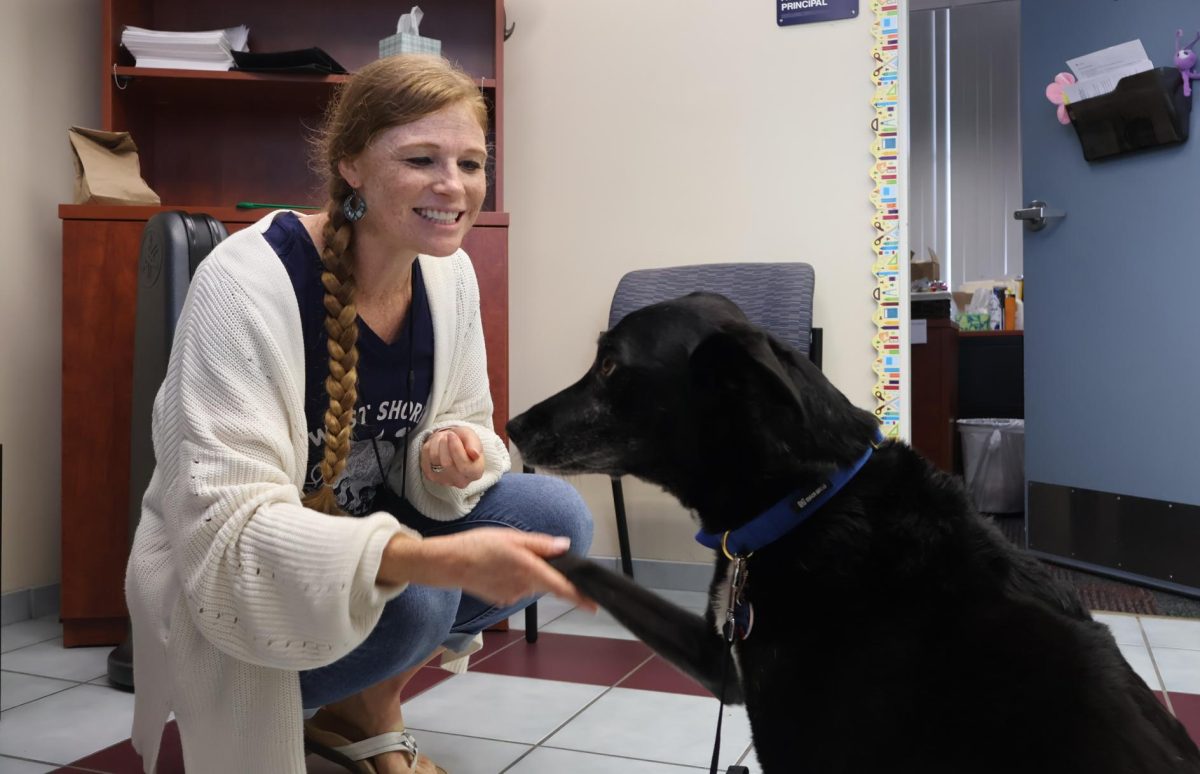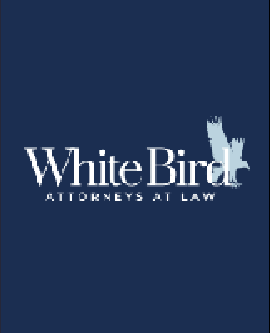College Board announces AP exam alterations
April 24, 2020
“Don’t take this away from me as well,” was the overwhelming response College Board received when deciding whether or not to cancel Advanced Placement exams for this academic year, according to the Head of Instruction Trevor Packer, during an April 16 webinar.
“Comments were very powerful and very moving,” Packer said. “Because students said things like ‘I’m not going to have a graduation ceremony anymore’ and ‘I have to cancel my senior trip,’ ‘I’m not going to have a Prom,’ ‘the athletic competitions I have been working for for years have been canceled.’ ‘But I can still earn college credit.’”
As a membership organization, College Board sought input from students, teachers and administrators across the nation regarding the state of AP exams. After receiving feedback and reading through about 900 pages of student comments, College Board found that 91 percent of AP students surveyed requested that the AP testing proceed, despite school closures.
“We did not want to add any more stress to students’ lives at the moment,” Packer said during the webinar. “There are more important things going on than college credit. When it became clear that schools were closing around the world, the AP program needed to make a decision.”
But after 65 years of proctored pencil-and-paper AP exams, College Board has transitioned the testing platform to 45-minute online exams. According to the AP Program, “each subject’s exam will be taken on the same day, at the same time, worldwide.” Streamlined exams will be given May 11-22 via any device a student has access to. Make-up test dates will be available June 1-5.
“The health and safety of educators and students is the AP Program’s highest priority,” according to a College Board press release. “As schools and communities navigate the challenges posed by the coronavirus outbreak, we are supporting AP students with free, optional virtual learning and online AP testing. These resources will give students the opportunity to earn the college credit and placement they’ve been working toward all year.”
Leading up to College Board’s decision, AP Psychology and AP U.S. History teacher Jim Pustay said there was a lot of speculation immediately after Spring Break regarding the fate of the AP exams.
“I was getting more information from Princeton Review than anywhere else,” Pustay said. “But I understand from Brevard Public Schools, they were waiting to see what the state was going to do with education, deadlines, changes, et cetera. We were beginning to hear around March 30 some of the possible changes coming from College Board slowly.”
On April 3, College Board made an official announcement that AP exams would be administered online in compliance with the social-distancing measures and school shutdowns. While a majority of AP exams have been adjusted to fit a 45-minute written exam format, certain courses, such as AP Computer Science Principles and AP Seminar, will require students to submit specified material to qualify for the college credit.
“At first I was concerned, as I’m sure many others were, because we have essentially been focusing on a specific test all year,” Evan Ratkus (11) said. “But I feel as if the change is not too bad.”
Enrolled in AP Chemistry, AP Capstone, AP Computer Science Principle, AP Language and Composition and AP Psychology, Ratkus said he doubted that College Board would have canceled AP exams.
“College Board wouldn’t waste a whole year’s worth of education over a virus,” Ratkus said.
While Pustay’s students have been preparing to take a traditional three-hour exam, complete with both multiple-choice sections and written essays, his students will now be tasked with answering one modified Document-Based Question for AP U.S. History, and two Free Response Questions for AP Psychology, within the 45-minute timeframe.
“I’m not totally happy with some of the changes in my areas, but it is what it is, right?” Pustay said. “Yet, [College Board] quickly came up with the format. Given the circumstances, and given the restrictions and fluidity of distance learning, and let’s not forget the issue of time, all of these things considered, if the colleges were happy with how college credit will be merited with what was prepared, or now issued, I guess it was handled averagely well.”
AP Exams will cover material students were expected to have learned prior to school closures in early March.
“Since most of my AP classes were ahead of schedule, we are just reviewing now,” Ratkus said. “It’s difficult to get the necessary feedback on assignments but it’s better than nothing. Obviously this is uncharted territory so it’s hard to say if I disagree with something I’m not sure about anyway.”
In an effort to assist students in their exam preparations, College Board is providing access to free, live AP review lessons. These lessons cover the remaining topics of AP courses that students were not taught prior to March, as well as review lessons for material that will appear on this year’s exams. Despite online resources, Pustay said that distance learning proves challenging as it’s difficult to “tell how prepared [students] are.”
“I am placing online what should be needed to prepare,” Pustay said, “But there really is no meaningful way [for me] to really know. For example, if I test on something, I still don’t know if [students] shared information with other students, or found answers on the web, or to the fact that the district guidelines tell teachers not to have strict deadlines. So, the bottom line is, I don’t know for sure.”
Concerns such as these, raise a question for many AP students: How will College Board regulate cheating?
“Like many college-level exams, this year’s AP Exams will be open book/open note,” according to the College Board press release. “The exam format and questions are being designed specifically for an at-home administration, so points will not be earned from content that can be found in textbooks or online.”
In order to preserve testing integrity, students are prohibited from consulting or interacting with others during their designated testing period.
“We are confident that the vast majority of AP students will follow the rules for taking the exams,” according to the press release. “For the small number of students who may try to gain an unfair advantage, we have a comprehensive and strict set of protocols in place to prevent and detect cheating. At a minimum, test-takers should understand that those attempting to gain an unfair advantage will either be blocked from testing or their AP scores will be canceled, their high school will be notified as will colleges or other organizations to which the student has already sent any College Board scores (including SAT scores), and they may be prohibited from taking a future Advanced Placement Exam as well as the SAT, SAT Subject Tests, or CLEP assessments.”
College Board’s “zero tolerance” policy for cheating includes the use of online chat rooms and other sources of online communication during the exams.
“There are two sides of the spectrum, those who will cheat and those who will take it honestly,” Ratkus said. “I’d assume it would be easier for the cheaters but since my classes have been on the ball since the first day of school, I feel prepared for most of my exams.”
The AP webinar emphasized that the difficulty of this year’s AP exams “will be statistically adapted for students,” meaning that the points required for the essay questions will be lower in value to compensate for the absence of multiple-choice questions to “boost their score.” In other words, this year’s adapted exam structure should pose no advantages or disadvantages, and should not impact the difficulty of earning a score of three, four or five in comparison to previous years.
“As usual, students’ work will be scored by our network of college faculty and AP teachers, and will be reported on 1–5 scale,” according to the press release. “We anticipate releasing scores as close to the usual July timeframe as possible. Colleges nationwide have committed to providing credit for this year’s AP scores just as they have in the past.
With three weeks until AP testing begins, Ratkus continues to prepare for his exams.
“[In AP Chemistry] we have been learning all year for two class periods,” Ratkus said. “All that for 45 minutes … [It’s] kind of crazy to make the entire year that short.”
Further details to help students prepare for their exams will be available next week. For more information, visit for cb.org/ap2020 .


![Sophomore Isabelle Gaudry walks through the metal detector, monitored by School Resource Officer Valerie Butler, on Aug. 13. “I think [the students have] been adjusting really well," Butler said. "We've had no issues, no snafus. Everything's been running smoothly, and we've been getting kids to class on time.”](https://westshoreroar.com/wp-content/uploads/2025/08/IMG_9979-1200x800.jpg)














































